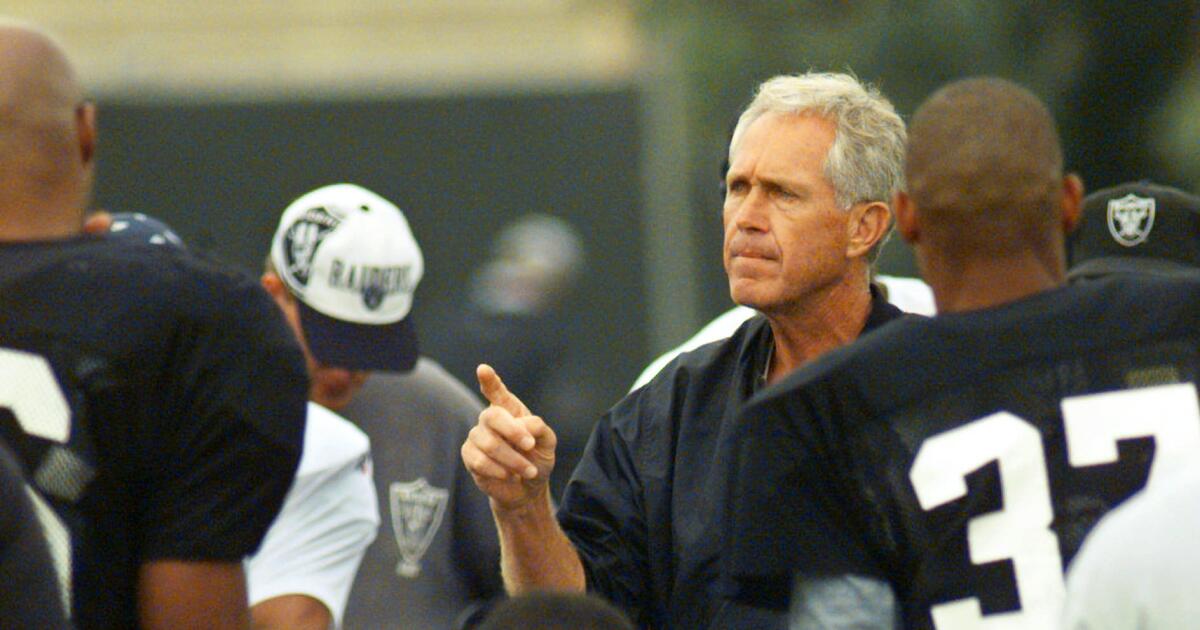Mike White, former California and Oakland Raiders coach, dies at 89
BERKELEY, Calif. — Mike White, who had a successful career as a college coach with California and Illinois and later coached the NFL’s Oakland Raiders, has died. He was 89.
Cal said White’s family confirmed that he died Sunday in Newport Beach.
White helped the Golden Bears win a share of the Pac-8 title in 1975, led the Illini to their first Rose Bowl in 20 years in the 1983 season and coached the Raiders in their first two seasons back in Oakland in 1995-96 after leaving Los Angeles.
He also worked as an assistant for the San Francisco 49ers and was on Dick Vermeil’s staff with the St. Louis Rams when they won the Super Bowl following the 1999 season.
“Mike was special,” said Burl Toler Jr., a linebacker who played at Cal under White from 1974-77. “He treated us like men and with a lot of respect. Mike was a very gifted and smart coach who loved Cal and loved being a coach, and he surrounded himself with a lot of like minds who instilled in us a will to succeed.”
White was a four-sport student-athlete at Cal in the 1950s and spent time as an assistant with the Bears and at rival Stanford before getting the head coaching job at his alma mater in 1972.
White had a 35-30-1 record in six seasons at Cal, with his biggest success coming in 1975 when he was named coach of the year after the Bears finished tied with UCLA for first place in the conference. Cal finished 14th in the nation with an offense that featured Chuck Muncie and quarterback Joe Roth.
White also coached quarterback Steve Bartkowski earlier at Cal and helped develop him into the No. 1 overall pick in the 1975 NFL draft.
He then left for the NFL, spending two seasons as an offensive line coach for the 49ers, before returning to college in 1980 with Illinois. He led the Illini to a 47-41-3 record with three bowl trips, including a loss in the 1984 Rose Bowl to UCLA.
That 1983 Illinois team went 9-0 in the Big Ten and is the only team in conference history to beat every other conference opponent in the same season.
White then returned to the NFL in 1990, spending five seasons as an assistant with the Raiders before taking over as head coach. He had a 15-17 record before getting fired after the 1996 season.
Dubow writes for the Associated Press.
